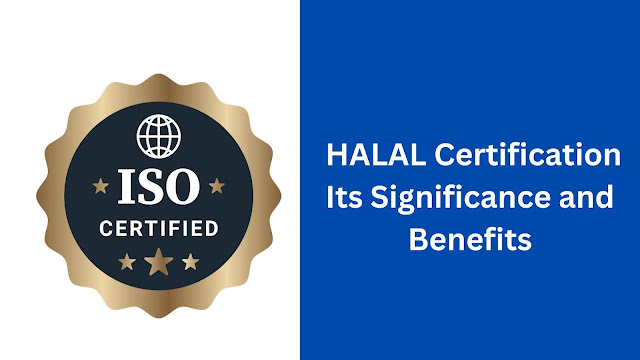Understanding HALAL Certification: Its Significance and Benefits
HALAL Certification: Its Significance and Benefits
In a world where diversity and cultural awareness are increasingly emphasized, the concept of HALAL certification has gained considerable attention. HALAL, an Arabic term meaning permissible or lawful, refers to products and practices permissible under Islamic law. HALAL certification ensures that products and services comply with Islamic dietary laws and are thus suitable for consumption by Muslims worldwide. Let's delve into what HALAL certification entails and explore its benefits.
What is HALAL Certification?
HALAL certification verifies that products, services, and processes comply with Islamic law, particularly concerning food, cosmetics, pharmaceuticals, and finance. To obtain HALAL certification, businesses must adhere to strict guidelines outlined in Islamic jurisprudence (Shariah) and meet specific quality and safety standards.
The certification process involves thorough inspections and assessments by authorized Islamic organizations or certification bodies. These bodies evaluate every aspect of production, including sourcing of ingredients, manufacturing processes, storage, and distribution, to ensure compliance with HALAL requirements.
Benefits of HALAL Certification:
1. Access to Muslim Markets:
One of the primary advantages of HALAL certification is access to the vast and growing Muslim consumer market. With over 1.8 billion Muslims worldwide, businesses that obtain HALAL certification can tap into this lucrative market segment. By offering certified HALAL products, companies can expand their customer base and enhance market competitiveness.
2. Increased Consumer Confidence:
HALAL certification instills confidence among Muslim consumers regarding the safety, quality, and authenticity of products. By displaying the HALAL certification logo, businesses demonstrate their commitment to meeting Islamic dietary requirements and ethical standards. This transparency fosters trust and loyalty among consumers, leading to increased sales and brand reputation.
3. Compliance with Religious Obligations:
For observant Muslims, adhering to HALAL dietary laws is not merely a matter of preference but a religious obligation. HALAL certification provides assurance that products meet these religious requirements, enabling Muslims to consume with confidence and peace of mind. It also helps businesses align with ethical and moral principles, appealing to a broader consumer base sensitive to religious considerations.
4. Enhances Export Opportunities:
In today's globalized economy, HALAL certification opens doors to international trade and export markets. Many countries with significant Muslim populations or regions with a growing demand for HALAL products require certification for imported goods. By obtaining HALAL certification, businesses can navigate regulatory hurdles, expand their export potential, and capitalize on emerging market opportunities.
5. Quality Assurance and Standards Compliance:
HALAL certification necessitates rigorous quality control measures and adherence to standardized production processes. As a result, certified products often meet or exceed industry standards for hygiene, safety, and quality. This commitment to excellence benefits not only Muslim consumers but also non-Muslims seeking products of superior quality and purity.
6. Diversification and Innovation:
Seeking HALAL certification encourages businesses to diversify their product offerings and explore innovative solutions that cater to diverse consumer needs. This drive for innovation fosters creativity and fosters a culture of continuous improvement within organizations, leading to the development of new products and services that appeal to a broader audience.
Conclusion:
HALAL certification serves as a bridge between religious principles and consumer markets, offering tangible benefits for businesses and consumers alike. Beyond meeting religious dietary requirements, HALAL certification promotes transparency, trust, and inclusivity in the global marketplace. As businesses recognize the growing significance of catering to diverse cultural and religious preferences, HALAL certification emerges as a strategic tool for market expansion, quality assurance, and ethical business practices. Embracing HALAL certification not only opens doors to new opportunities but also fosters a more inclusive and respectful business environment in an increasingly interconnected world.

.jpg)
.jpg)
.jpg)
Comments
Post a Comment